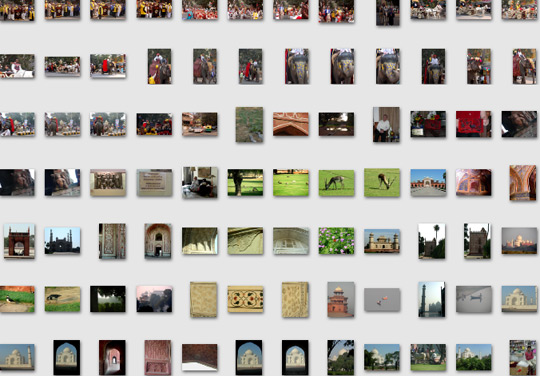
As we write this we are sitting in the Detroit Airport waiting for the last leg of our odyssey, the flight to Portland.
We feel an urge to summarize, but it is not possible. India is too complex and chaotic to yield to easy summation, so we will make do with a few parting comments.
Our American emphasis on “doing”, “productivity”, “efficiency” and “outcomes” came up against the Indian emphasis on “status”, “hierarchy” and “obligation.” Some frustrations were inevitable.
Public health and science education were our main professional interest areas, but such information is not openly available. Although India is a nation that produces many mathematicians, quantitative information is not a top priority. We heard lots of contradictory information. In part that is because record keeping is minimal, but it is also because the “facts” are vastly different for different parts of the country and for different groups of people within the country. We were guinea pigs in our own studies of public health; we were careful and had very little stomach problems, but we were frequently sick from Delhi’s air pollution. Even though all vehicles used for public transportation must use clean natural gas, all the private vehicles run on diesel fuel and have no engine pollution devices. India is changing so fast that growing pains must be expected.
We have never lived in a big city before, and enjoyed many things about the experience. Ready access to public transportation was great; we have not driven a car in five months! Being able to walk to the shops in Bengali Market was great. The concentrated people watching was fabulous! The bright colors in sarees and Sikh turbans and flowers, the chaotic bustle of wild drivers of gas- and animal-powered vehicles all created a feast for the eyes.
Concepts we might have thought were “universal” are not. Time, for example, is not linear in India. It is flexible and stretchable, and being “on time” has little meaning. The past is very much part of the present. The unit of time in India is millennia (while in the U.S. it is maybe three years?) People know their family genealogy back 15 and 20 generations and Hindus believe in rebirth so the future also has different meaning. There are beautiful landscapes but no wilderness, so “nature” has quite a different meaning. “Personal space” doesn’t exist. “Available space” on a sidewalk or road is any space not currently occupied, or that probably won’t be occupied by the time you reach it. "Sufficient space" is much smaller than what we would think of. The tailor in Bengali market sat on a mat in a little cubicle that was three and a half feet high. Since he was always sitting he didn't need a full eight feet high ceiling, so the four feet above him could be used for hanging shirts. The grocery store was about twenty feet wide and twenty feet from front to back, but if you needed something that wasn't on the shelf, someone zipped up a ladder and found it in a mysteriously large space up above the ceiling.
If the joy of discovery thrills you, and you want to challenge everything you thought you knew, India is the place to visit.
Besides family and friends and Rudy, we are looking forward to salads, beef, tap water, fresh air, predictability, and wearing blue jeans. Somehow cold weather did not make the aforementioned list!!
Hope you have enjoyed this blog. We enjoyed writing it; it kept us feeling connected to all of you.
Home soon, but be advised, we have 1400 digital photos, so run and hide while you can.


